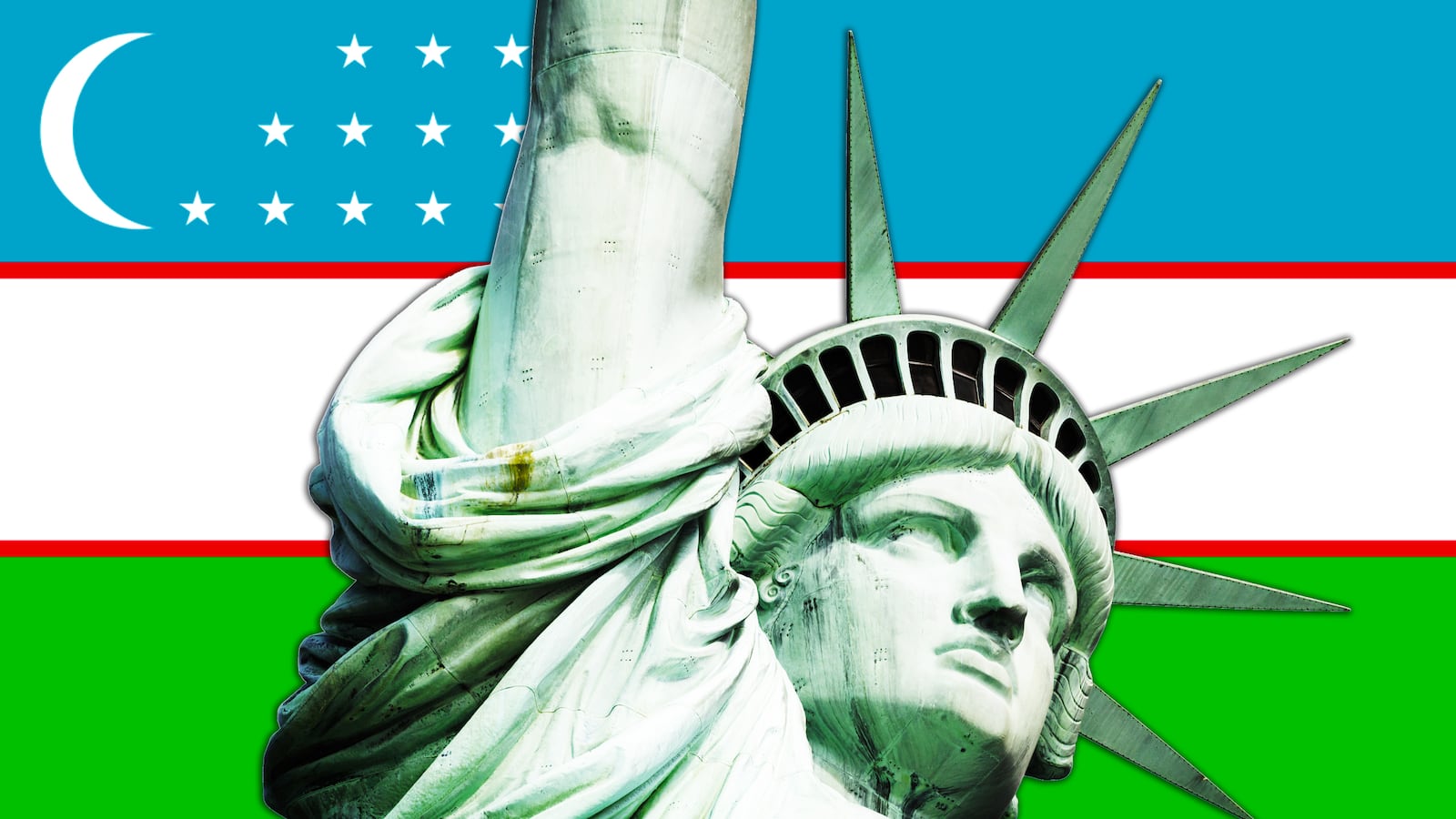A cloud of unrest lingered over a mosque popular with Uzbek immigrants in Brooklyn during Friday prayers, as New York’s growing Uzbek community grappled with its unlucky foray into the public discourse on terrorism and Islam. Days earlier, Sayfullo Saipov, another immigrant from Uzbekistan, was arrested for carrying out the deadliest terror attack in New York City since September 11th, 2001.
“I'm gonna make this brief. You know a couple of days ago there was a terror attack in this city,” Kenan Taskent, a community leader at the Eyup Sultan Cultural Center in Brighton Beach, told the congregation in the middle of the Jummah prayer service. “I tell everyone, the doors of this mosque are always open.”
The message is a common refrain for Muslim communities who feel on the defensive, their reputations sullied by a few rogue actors. Taskent told The Daily Beast that the Uzbek community, many of whom are recent immigrants, faces additional unique challenges in the wake of Tuesday’s tragedy.
“People that been here like me, for 35 or 40 years, have nothing to be afraid about because obviously I can express myself,” Taskent said. “But sometimes there’s a language barrier with Uzbeks and everyone else, and sometimes immigration status, another factor where they’re afraid when they shouldn’t be afraid.”
On Tuesday, the president of the Vatandosh Uzbek-American Federation lamented how Saipov’s actions portrayed the ethnic group.
“This is crazy. I don’t know how we get rid of these people [terrorists],” Farhod Sulton told The Daily Beast. “We as a community become victims of this too.”
The Turkish-founded Brighton Beach mosque is a popular house of worship for the area’s growing Uzbek community. Though many weren’t raised religious, they are drawn by the relaxed atmosphere and the linguistic similarities between Uzbek and Turkish.
“There are a couple of people in the community who said, I’m afraid to go to the mosque because I’m afraid I might be targeted for retaliation,” said Taskent, who is part Uzbek and whose father was a founder of the mosque. “Which is normal. As a matter of fact, we had an incident in the 6-2 [precinct].”
Lieutenant Adeel Rana, president of the NYPD Muslim Officers Society, reassured the congregation that NYPD was on their side during the service.
“I would like to assure you that the NYPD is here to protect every single person,” Rana said.
Looming over his comments was an incident Wednesday, when Ukrainian immigrant Dmitriy Gekhman was arrested for allegedly scrawling “Fucking Uzbeks, go home” on the wall of his Bensonhurst apartment building.
But the Friday prayer at the Brighton Beach mosque was well attended and passed without incident. Outside, officers from the NYPD’s community affairs unit talked to young Uzbek men, encouraging those interested in joining the force.
“One thing the NYPD prides itself on is having officers from all the different communities,” on police officer told a young man, asking for his contact information. “It’s been different, some former Soviet republics are so small and so isolated.”
Meanwhile in a nearby neighborhood home to Saipov’s in-laws, sounds of cooking could be heard through the closed apartment door. But no one came to answer it when this reporter rang.
Saipov’s mother-in-law previously told the media that she was floored by his actions.
“I'm in shock... can't believe it,” Nodira Agzomova said.
Most of the tri-state area’s growing Uzbek community, the majority of whom came here through the same diversity visa program as Saipov, live ordinary, family-oriented lives in Brooklyn and Queens. They often grew up in the secular Soviet Union, and many maintain close ties to their home country, where they think they may one day go back.
But the American public’s introduction to the Uzbek community has been through a handful whose secular upbringings made them easy targets for ISIS propaganda.
Five days before his compatriot mowed down 19 people in a West Side Highway bike path, Abdurasul Juraboev sat nervously in a Brooklyn courtroom as his lawyers pleaded the judge consider "circumstances and context" before handing down a prison term. He'd won the diversity visa lottery and settled in Brooklyn before becoming enamored with ISIS and planning to go fight in Syria. He and other men were charged in a plot where some of them allegedly hoped to go fight with ISIS, while others funded them."It's like other people who win lotteries—it has lots of unintended consequences," federal public defender Michael Weil told the judge at Juraboev’s sentencing last week. As a young man with no religious roots, Juraboev had gravitated towards extremism on the internet, Weil said.
Juraboev himself disavowed his prior beliefs, in a speech so passionate even prosecutor was moved to say it was genuine.
But it made no difference. He was sentenced to the maximum, 15 years, and will be deported to Uzbekistan upon release.





